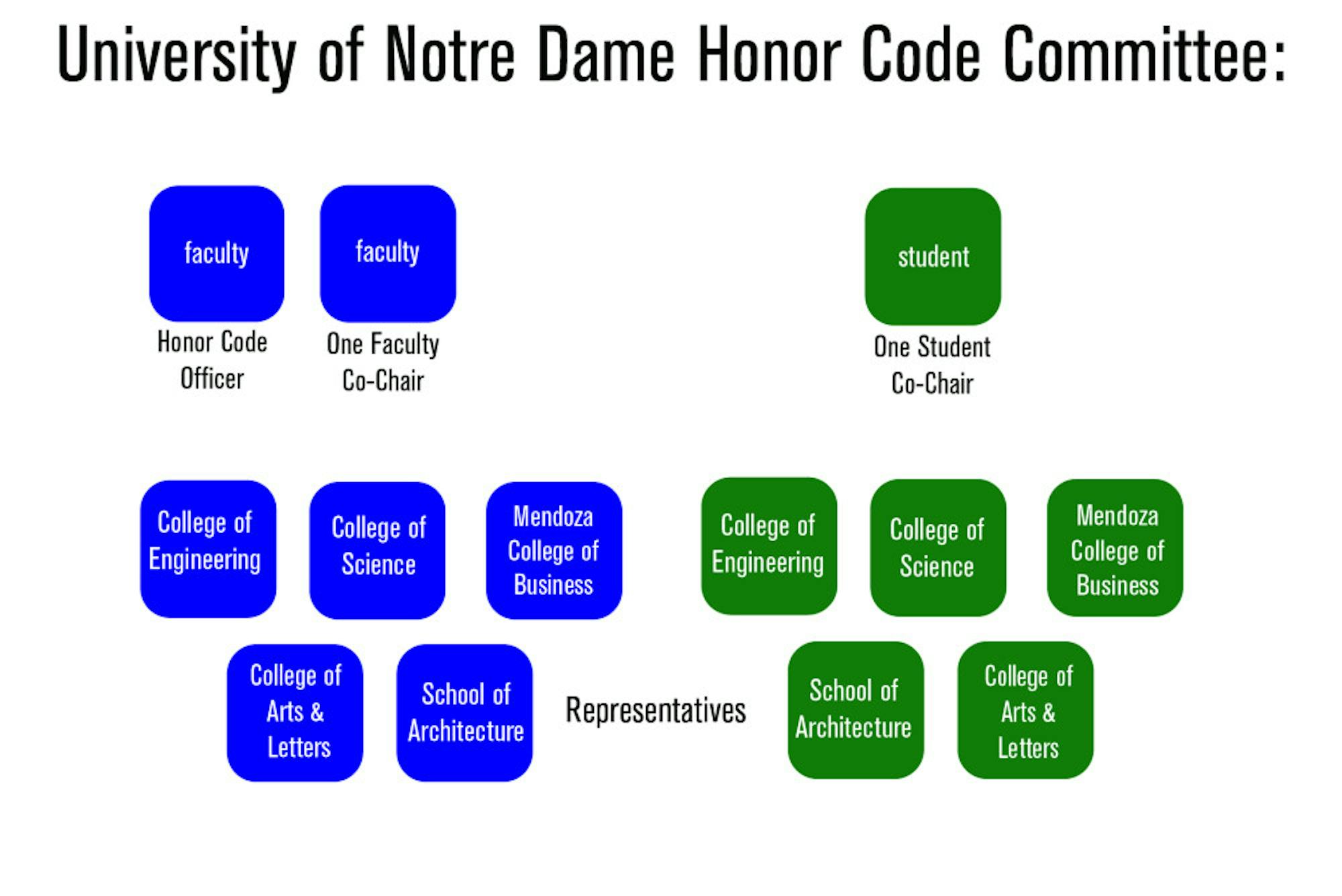Notre Dame’s Undergraduate Student Academic Code of Honor Handbook has 9,213 words. It spans 25 pages.
The document, to an extent, is a guiding force in determining the current fates of the five Irish football players who have been withheld from practice and competition this season.

Irish junior cornerback KeiVarae Russell, senior receiver DaVaris Daniels, senior defensive end Ishaq Williams, graduate student linebacker Kendall Moore and senior safety Eilar Hardy have been held out of practice and competition during the probe into “suspected academic dishonesty.”
Notre Dame announced its investigation Aug. 15. The University said “evidence that students had submitted papers and homework that had been written for them by others” was initially suspected at the end of the summer session and referred to the compliance office in athletics July 29. Notre Dame said the Office of General Counsel then initiated “an immediate investigation.”
Irish head coach Brian Kelly said Thursday evening he expects hearings to be wrapped up within the next 24 hours.
In an attempt to better understand the ongoing process that has spanned — at least publicly — nearly 50 days, The Observer has highlighted certain aspects of the Honor Code.
In an attempt to understand some notably vague areas of the Honor Code, The Observer reached out to University President Fr. John Jenkins and the Rev. Hugh Page Jr., Co-Chair of the University Code of Honor Committee, but they each separately declined interview requests.
Who?
The University Code of Honor Committee consists of 12 members — six students and six faculty members. Of the students, there is one representative each from the Colleges of Business, Engineering and Science and two students from either the College of Arts and Letters or the School of Architecture. There is also one student Co-Chair member.
Colleges or schools may set up Honesty Committees at either the departmental or college level, and students must constitute the majority of a given committee’s members. The chair of a department or dean of a college requests students to “participate in investigating and determining responsibility” in Honor Code cases by serving on Honesty Committees.
The department chair or college dean bears the responsibility for “publicizing the names of committee members,” either by posting them in the offices or on web sites.
Students or faculty members reporting potential violations are instructed to submit reports “to the Honesty Committee of the department or college offering the course [in which the potential violation occurred].”
The Honor Code does not stipulate which Honesty Committee should hear case(s) regarding potential violations that may have occurred in multiple courses spanning different departments or colleges.
According to Notre Dame’s website, Russell is in the Mendoza College of Business, while Daniels, Williams and Hardy are in the College of Arts and Letters. Moore, who is currently enrolled in graduate courses, graduated in May from the College of Arts and Letters.
When?
The Honor Code does not stipulate in what time frame students should be notified of “guilty” decisions.
The Honor Code states, “if the committee decides a student is responsible for a major or minor offense and assigns a penalty, the chair of the Honesty Committee notifies the student in writing of the committee’s decision and of the penalty.”
Students wishing to appeal decisions of major or minor offenses must do so within seven days of the notification of the decision.
If the committee finds the evidence does not support a finding that a violation occurred, the chair of the committee notifies the student of the decision.
“The notification should, if possible, be sent within one week of the hearing,” the Honor Code states.













